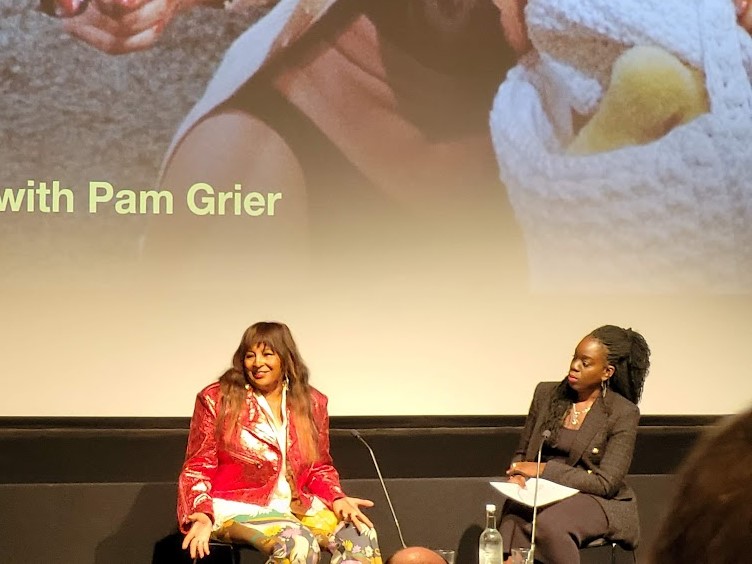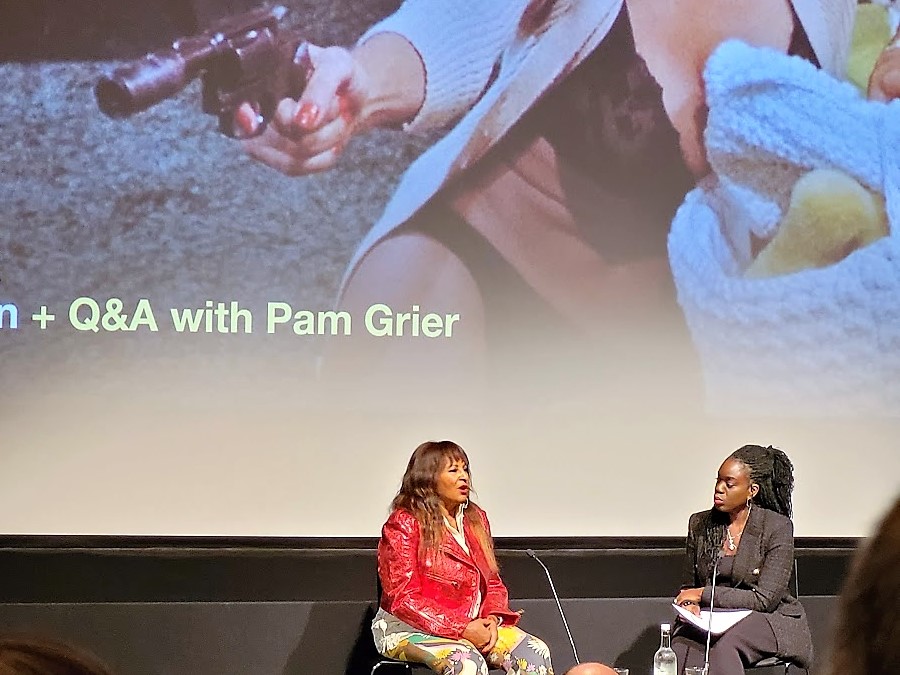Pam Grier at the BFI. — Image: — © Tim Sandle
Pam Grier’s acting career has spanned fifty years and her work is currently receiving a retrospective at the British Film Institute (BFI) in London. The retrospective naturally includes Jackie Brown, the movie that revived her career, but also many of the 1970s flicks that brought her fame the first time around and established her as a leading female icon, possibly cinema’s first female action star.
To accompany one of the screenings, Grier was in attendance and took part in an interview, followed by some questions from the audience. Such was 73 year-old Grier’s enthusiasm and prolonged answers, the forty minute session did not allow for too many questions, but Grier filled the time with an array of anecdotes.
These anecdotes covered her life growing up in relative poverty in a rural community to her attending film school in L.A. Grier as also briefly involved with the music scene, providing backing vocals for Bobby Womack and Sly Stone. She was spotted by horror-centric B-movie director Roger Corman, which provided an entry route into movies. This led to her taking the leading role in half-a-dozen 1970s films.
Pam Grier proved to be a witty, sharp, and amusing. She was also well aware of the interconnection between her work and changing societal norms and values. Not only did she help push actors of colour more into the mainstream she also advanced women in film, especially with the provision of leading roles for women in action orientated movies.
Many of Grier’s 1970s works are associated with the ‘blaxploitation’ genera of movies. These movies, generally profitable and able to extend to a diverse audience, have equally been criticised of perpetuating stereotypical characters for certain sections of the community who often involved in criminal activity.
Grier acknowledges this but also the cultural significance of bringing black actors into the mainstream and with tilting the gender disbalance over certain roles.
In many of these films, the female role would simply be a scene setter for the male lead.in Grier’s films, she is the lead and one that takes a proactive role. In the film that was shown at the BFI, 1974’s Foxy Brown, Grier takes on a bests a criminal gang of largely white men. This movie is representative of Grier’s ‘70s output, where her character displays a cunning ability to exact retribution on men who challenge her.
The iconic status of the role is apparent in the fact that Quentin Tarantino renamed the character of Jackie Burke from ‘Rum Punch’ to ‘Jackie Brown’, in his movie of the same name, as an homage to Foxy Brown.
Grier continues to act, appearing in the occasional film as well as successful U.S. television shows, concluding Kate “Kit” Porter on the Showtime drama series The L Word (2004–2009), and Constance Terry in the ABC sitcom Bless This Mess (2019–2020).
During the talk, Grier mentioned a new project she was working on where she will write and direct a television series – one that will feature strong female leads and not shy away from reflecting what is going on in wider society.


